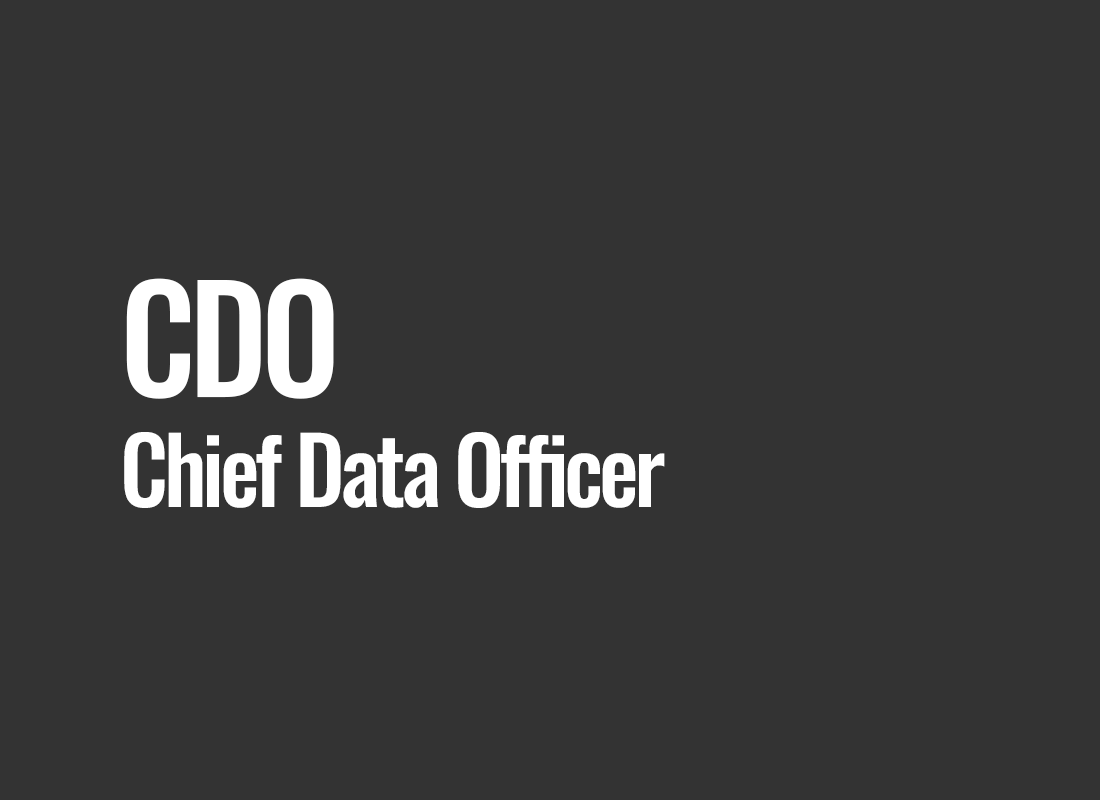CDO (Chief Data Officer)
In today's digital landscape, where data has become an integral part of every organization, the role of the Chief Data Officer (CDO) takes on extraordinary significance. A valuable resource when properly managed, information becomes a key catalyst for making effective business decisions. As the architect of data strategy, the CDO not only safeguards data security but, more importantly, guides the organization towards a future where intelligently utilized data forms the foundation of development.
For many companies, data has become the new oil, and the CDO is undoubtedly one of the main engineers steering the data explosion towards business value. They are not just leaders but also visionaries who understand how data can be effectively transformed into competitive advantages. Consequently, the definition of the CDO role extends beyond traditional data security boundaries, encompassing a broad perspective of strategic information management.
The Chief Data Officer is not just a guardian of data but also an innovator, seeking ways to extract hidden value from the vast amount of data collected. In an era where change is the only constant, the CDO provides certainty in steering the organization towards the future.
CDO Responsibilities
Strategic Data Leadership
As the chief architect of data strategy, the CDO is responsible for the development and implementation of comprehensive data management plans. This involves not only defining key data areas but also identifying their value for the organization. Leading the design process of systems enabling effective data collection, storage, and analysis places the CDO at the decision-making center of the organization, influencing the overall business strategy.
Data Security
Data security is a top priority for the CDO. In the age of widespread cyber threats and increasingly aware consumers, the CDO must create and implement data security policies. The responsibility for monitoring risks, identifying potential threats, and implementing modern encryption solutions places the CDO at the center of actions aimed at protecting the company's most valuable asset – data.
Collaboration with Teams
The CDO serves as a bridge, connecting various areas of the organization. Effective data management requires close collaboration with IT, marketing, e-commerce, and other departments. The ability to communicate effectively with technical experts and business representatives is crucial. The CDO acts as a mediator, ensuring that everyone understands the importance of data and its role in business processes.
Compliance and Regulations
The regulatory environment related to data is dynamically evolving. The CDO must track changes in regulations, ensuring that the organization remains compliant with current rules, such as GDPR or industry-specific regulations. Additionally, educating employees about data collection and processing principles becomes an integral part of the CDO's role, supporting the organization in maintaining an ethical and legal approach to data.
Required Skills
Technology Knowledge
The CDO must be a technological enthusiast, well-versed in modern tools related to data processing, data analysis, artificial intelligence, and machine learning. Familiarity with database management tools and the ability to use analytical platforms become key elements of success in this role.
Analytical Skills
Data analysis is the foundation of effective information management. The CDO must possess advanced analytical skills, allowing for the interpretation of data, identification of trends, and prediction of changes. This enables making informed business decisions based on facts, a key asset for a data leader.
Leadership and Communication
Effective data management is not only about technology but also about people. The CDO must be not only an excellent leader but also a communicator capable of adapting their message to different audiences. Effective communication with technical experts, management, and other organizational departments is crucial for success in this position.
Innovation Orientation
In today's dynamic business environment, the ability to adapt and openness to innovation are crucial. The CDO must lead an organization following new technologies and trends, constantly seeking new ways to improve data-related processes. Innovation orientation becomes one of the pillars of CDO success, influencing both operational efficiency and the organization's ability to compete in the market.
Summary
The Chief Data Officer is not only a guardian of data but also a catalyst for organizational transformation through intelligently utilized data. In a evolving world where data is a key asset, the CDO role becomes strategic for any company aiming to succeed in the information era. Investments in developing data management skills are essential, and the prospects for development in the Chief Data Officer position offer not only personal growth but also steering the organization towards a data-driven future.




